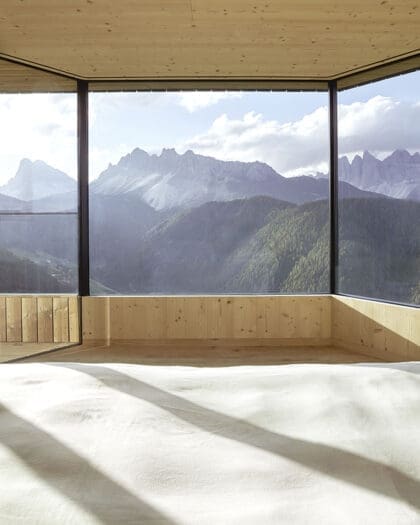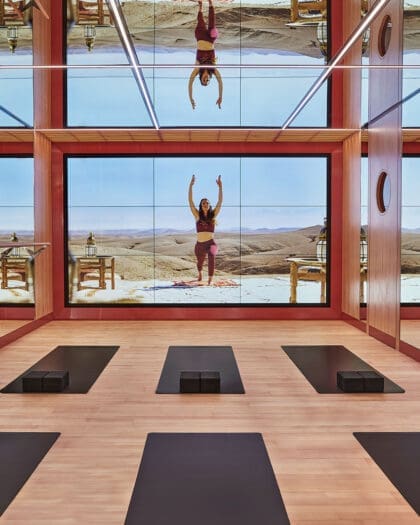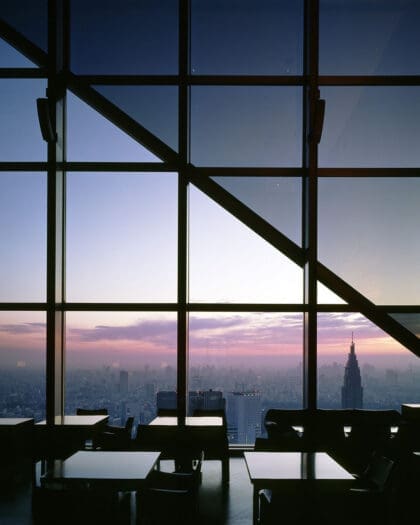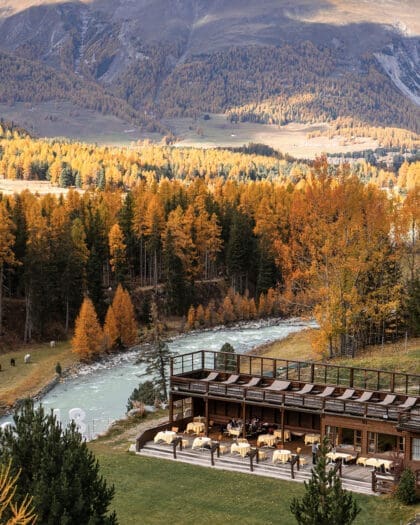
Super hotels of the future: innovations shaping a new era in hospitality
Robots in the lobby, biometrics in the spa – what does the future hold for hotels? One thing is certain, they are set to become smarter, greener and more personalised.
Good hotel design doesn’t age, but all hotels must evolve to stay relevant – whether by integrating the latest technology and sustainability measures or creating hybrid workspaces that foster community.
Hotels also have the power to shift and inspire lifestyle choices, from interior collaborations that spark global trends to wellness spaces that set a new standard in health and fitness. We asked a series of hospitality leaders to weigh in on how hotels are evolving and what they envisage for the future. As technology grows ever more sophisticated, there is unwavering agreement on the primacy of human connection – whether through thoughtful, attentive service, personalised itineraries or ambient social settings that leave a lasting impression.
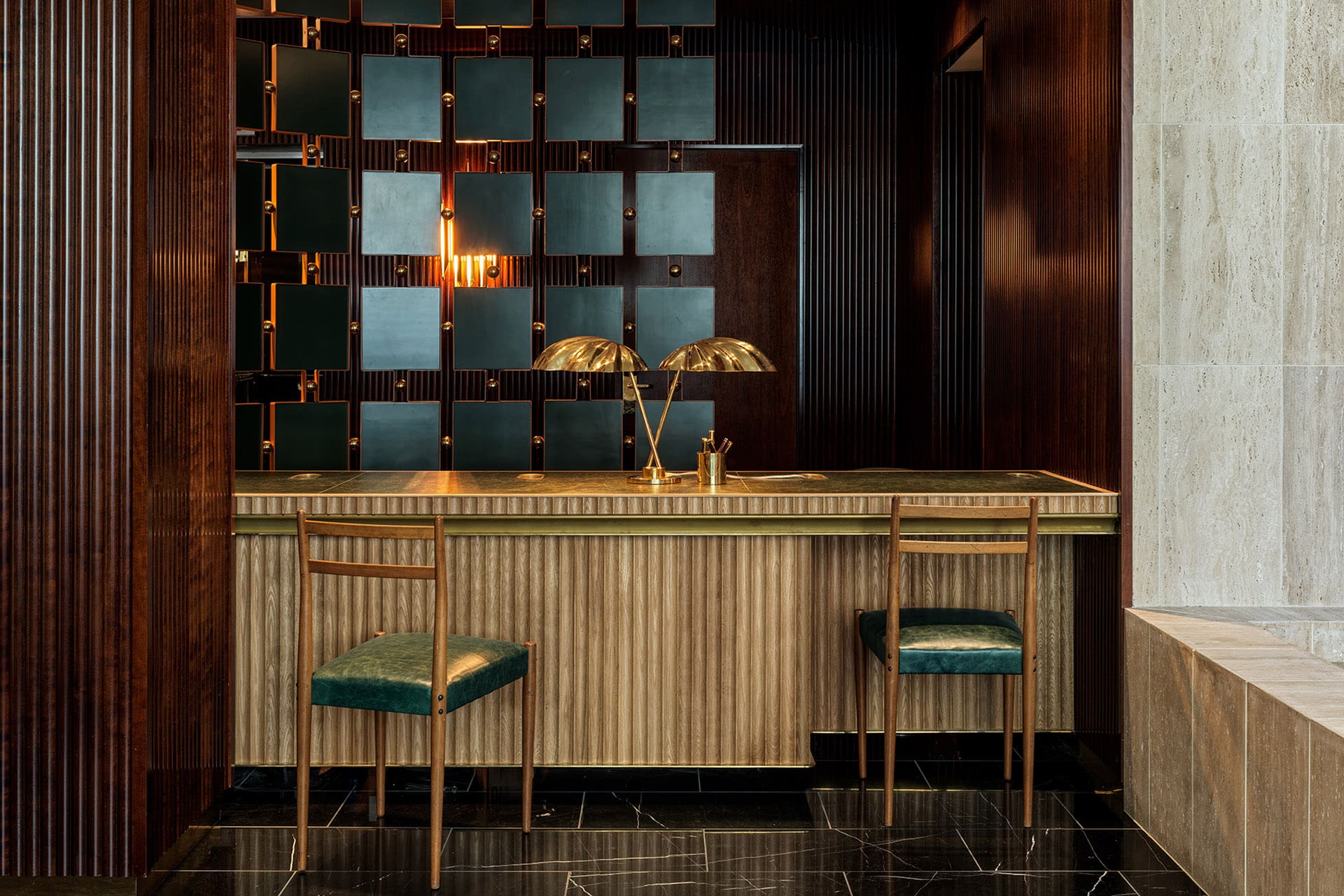
How are hotel lobbies evolving?
Ask any seasoned traveller and hotel check-ins often remain a pain point. Ditto luggage collected by porters that takes an age to arrive, and rigid check-in times. The future promises a more flexible, frictionless arrival experience.
“It’s a pain point that should not exist given technology,” says Amar Lalvani, who joined Hyatt in 2024 as president and creative director of The Lifestyle Group, following the company’s acquisition of Standard International. He designed The Manner hotel in New York based on how he likes to travel, and it is likened to the home of a discerning friend. In place of a grand desk there is a “tiny, very intimate reception, more like an optician or a jeweller.” It aims for 80 per cent of guests to be checked in before they arrive. “We should know who you are and your key should be waiting for you. It is as minimal a process as possible so that the interactions with our team can be meaningful and enjoyable rather than procedural.”
In his forthcoming 2026 book The Future of Hotels: Creating What’s Next, professor Ian Yeoman predicts that by 2050, guests will arrive via autonomous aerial pods and be instantly recognised by AI concierges. “Robotic staff will manage logistics, while human hosts serve as emotional guides and ethical stewards.” In other words, travellers can enjoy the warmth of human connection, without any tedious wait time. You’ll also likely find branded retail where a traditional front desk once stood. We can also expect personalisation to be embedded into the customer experience from the moment they arrive, through AI-powered, hyper-personalised itineraries based on real-time data.
There is a fine line between contactless and soulless, and the challenge faced by the hospitality industry is balancing technological self-sufficiency with the human touch. “Technology has brought incredible convenience, but the human element is irreplaceable,” says Avi Brosh, founder of Palisociety. “A warm welcome, a local tip from the front desk, a morning conversation over coffee – these are the things that linger in a guest’s memory.”
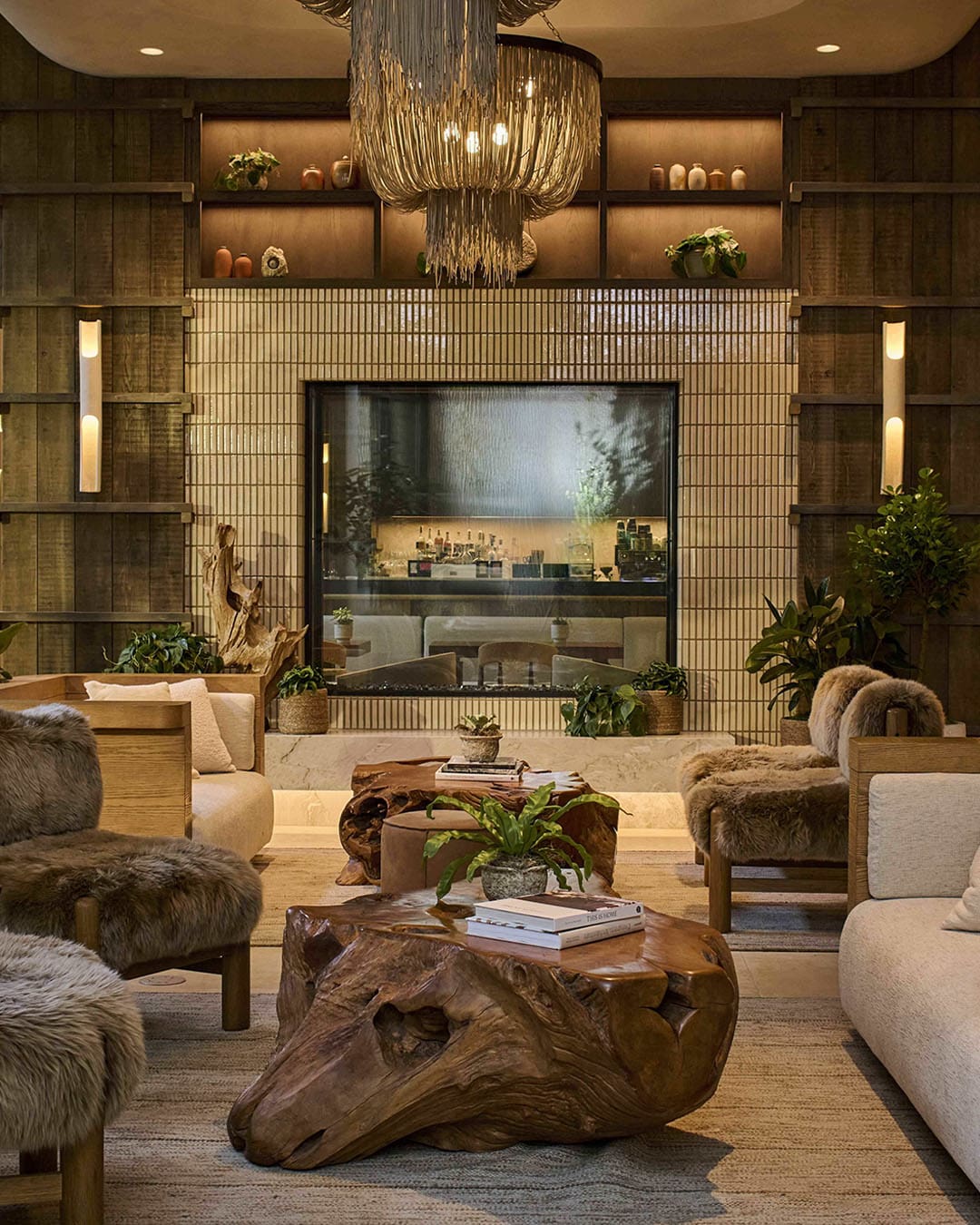
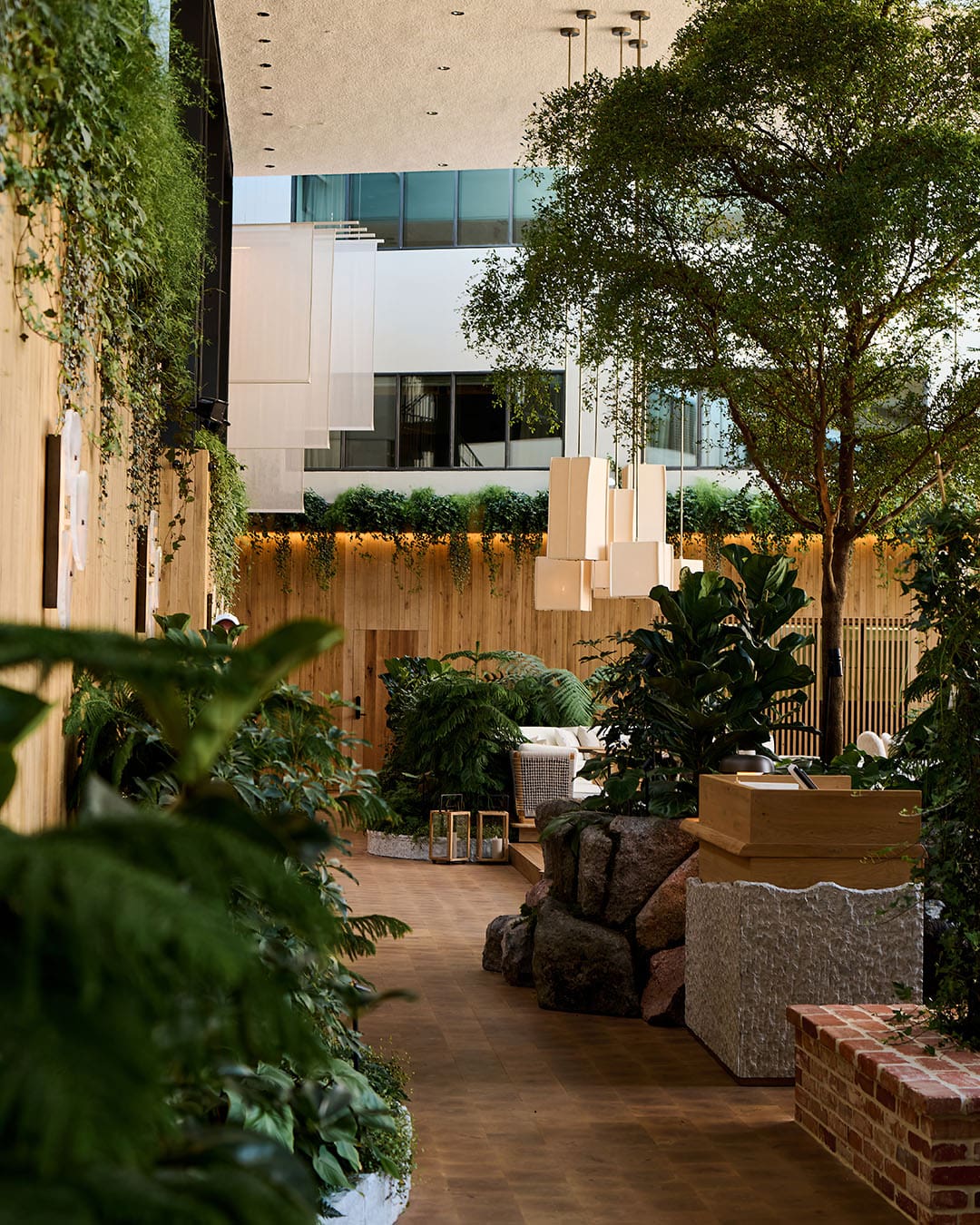
Sustainability and less-is-more luxury
Hotels have made significant headway in sustainability. Spotting single-use plastic in the bathroom now feels akin to seeing a lit cigarette in a lobby, while bed linen is rarely changed daily unless on request.
Beyond basic bed linens and in-room amenities, hotels will be held accountable for their total footprint, from build through development and operations (referred to as lifecycle accountability). “A hotel’s impact begins long before its first guest arrives,” says Tim Peck, chairman of OBMI, the architectural practice behind Royal Mansour Marrakech, St Regis Bermuda and the Rosewood Half Moon Bay in Antigua, among others. Projects contribute positively to the surrounding environment, whether through reef restoration, support for local agriculture or employment opportunities. “The way we shape the land, source materials and collaborate with local communities is just as important as how we manage energy or water on site, for example.”
“By 2050, I hope nature-driven hospitality is the standard for every hotel,” says Toni Stoeckl, chief marketing officer at Starwood Hotels, the parent company of the 1 Hotels brand, an industry leader in sustainability and eco-conscious practices. “The future of hospitality will belong to the brands that are transparent and accountable,” says Stoeckl. “I also hope the outdated belief that luxury requires excess is left behind.”
“A hotel's impact begins long before its first guest arrives"

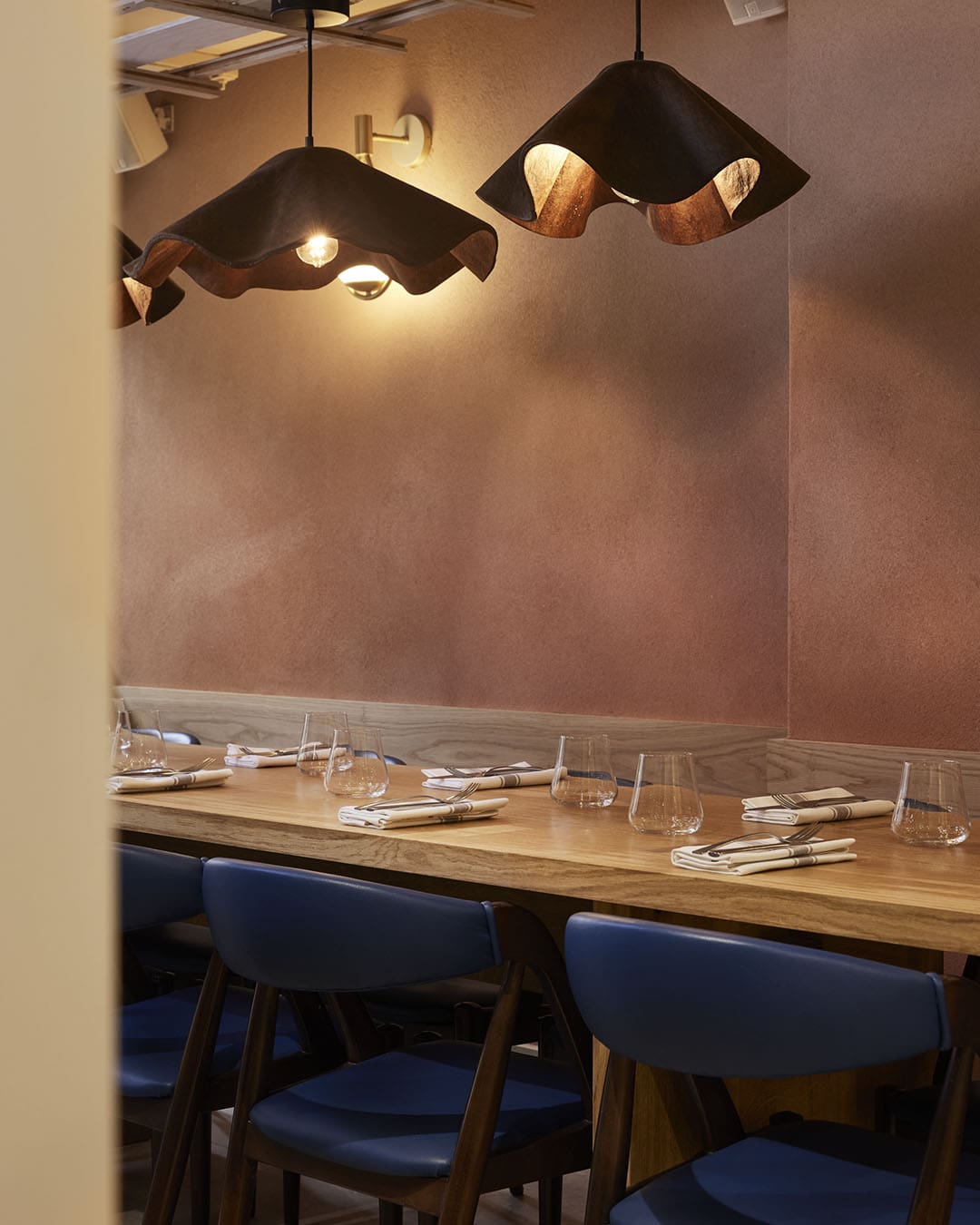
“Food waste is one of the biggest challenges in hospitality,” adds Stoeckl. “It is one of the most immediate and measurable ways we can reduce our impact as a hotel group, from how we source ingredients to how we repurpose scraps and donate surplus food.” Evolving advances in AI also allow for personalised menus that predict demand and portion sizes.
Chantelle Nicholson, chef-owner of Apricity in London and chef partner at 1Hotel Copenhagen, believes tackling food waste requires “a shift in mindset from guests to appreciate what is seasonal and available. I hope we abandon the idea of everything being available all the time.” Her London restaurant holds a Green Star for its low-waste cooking and sustainable sourcing, an approach also followed at Fjora at 1Hotel Copenhagen. “I’d like to see hotel companies invest in training to support employees with this shift.”
Will the big buffet breakfast continue to exist? “They are here to stay, as they serve a great purpose,” says Nicholson. “They feed a lot of people in a relatively short space of time. But small tweaks – smaller vessels, fewer items – can make a big difference.”
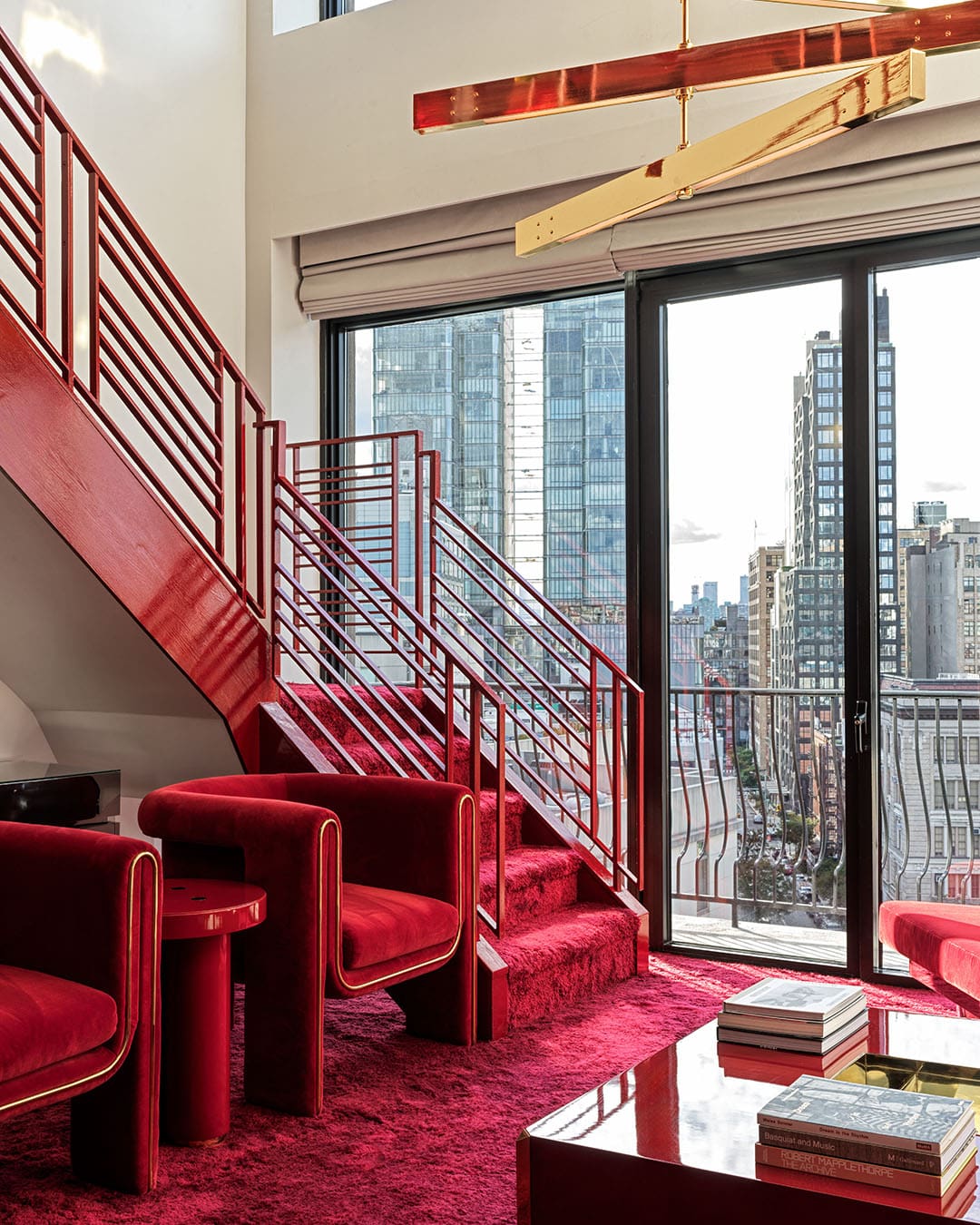
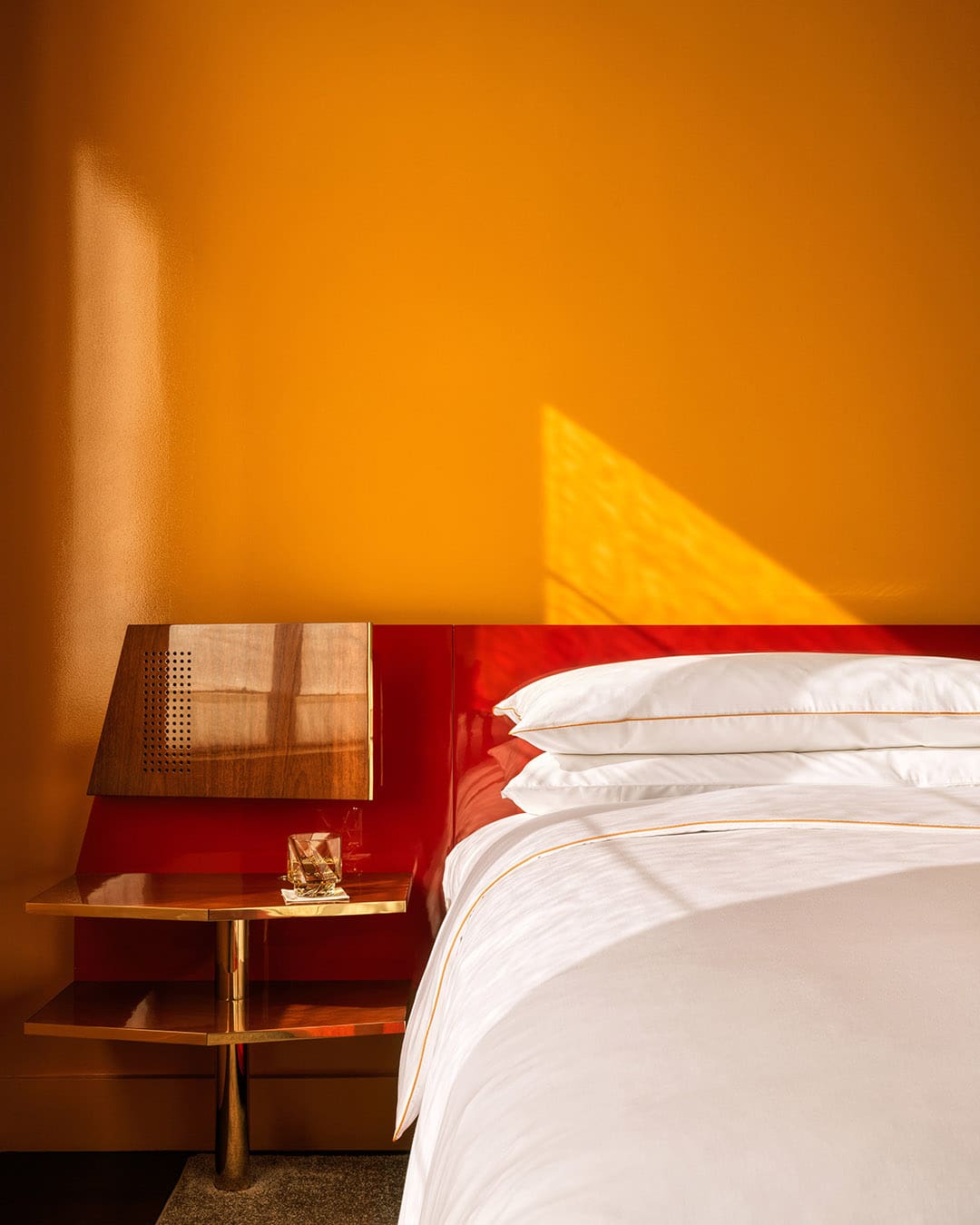
Responsive rooms and instinctive interior design
Dimmed lighting to lower heart rate; soft music to ease stress; instinctive temperature control. AI technology has the power to create responsive, personalised rooms. Forget calling the front desk (another frequent pain point) or fiddling with an overcomplicated interface, hotels are creating adaptive spaces that also anticipate individual needs. At Accor, this extends to environmental factors such as water consumption, to “help our guests be eco-responsible actors,” says Damien Perrot, the group’s global chief of design, technical services and innovation officer.
The redundant widescreen is likely to be phased out. “The layout of the room is so much better without a TV,” says Amar Lalvani, who opted for screen-free rooms at The Manner. “Almost everyone travels with entertainment on their own devices and for some unknown reason, hotels have never figured out intuitive streaming. So you’re left watching your own device in a layout geared toward a TV you’re not using. And since no one watches, hotels no longer have good channels (or naughty pay-per-view) like the old days. That means you’re just checking a box.”
“The aesthetic stakes have been upped across the board in hotel design,” Lalvani continues. “For the future, it needs to be beautiful, no doubt, but also as intuitive and functional as possible.”
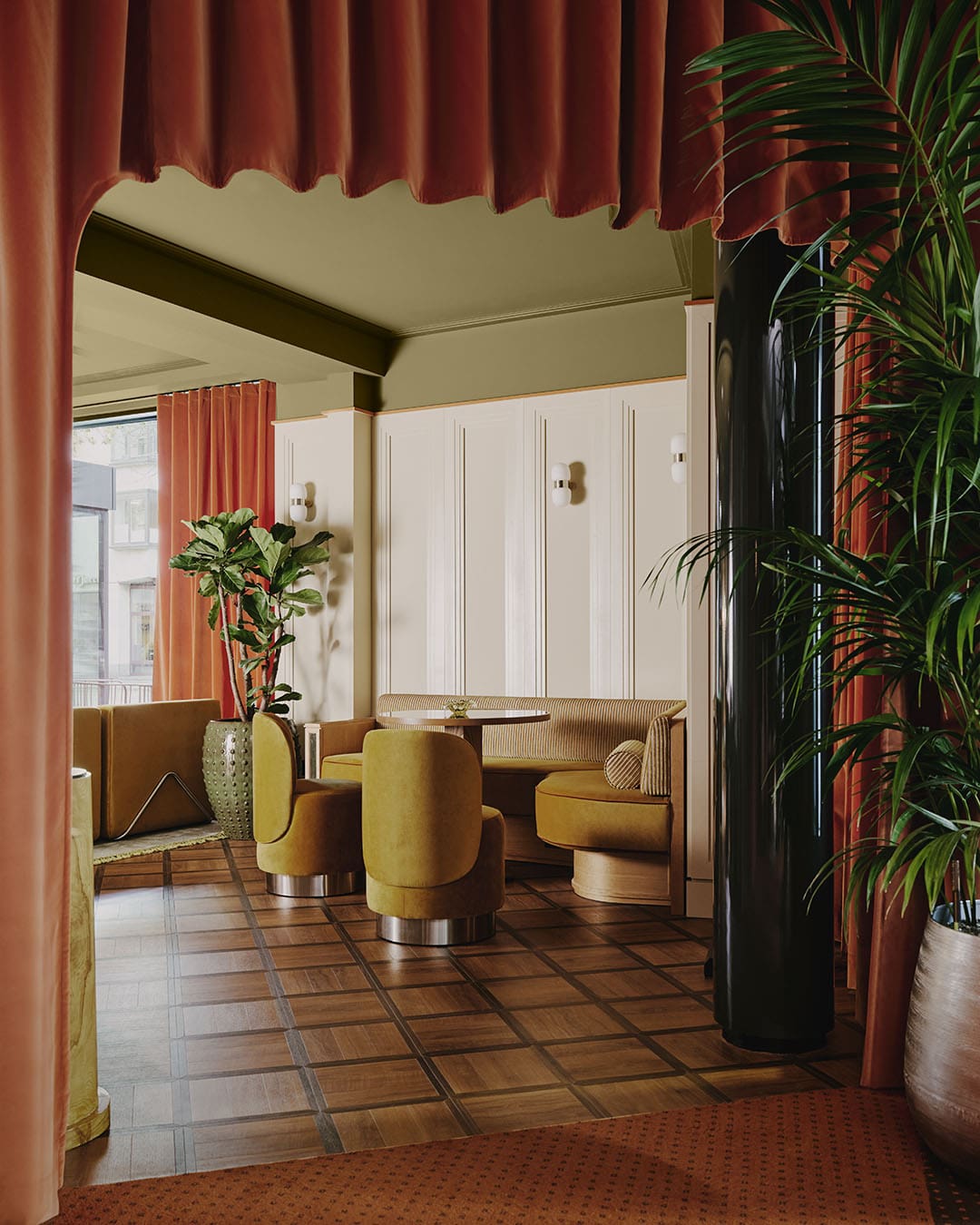
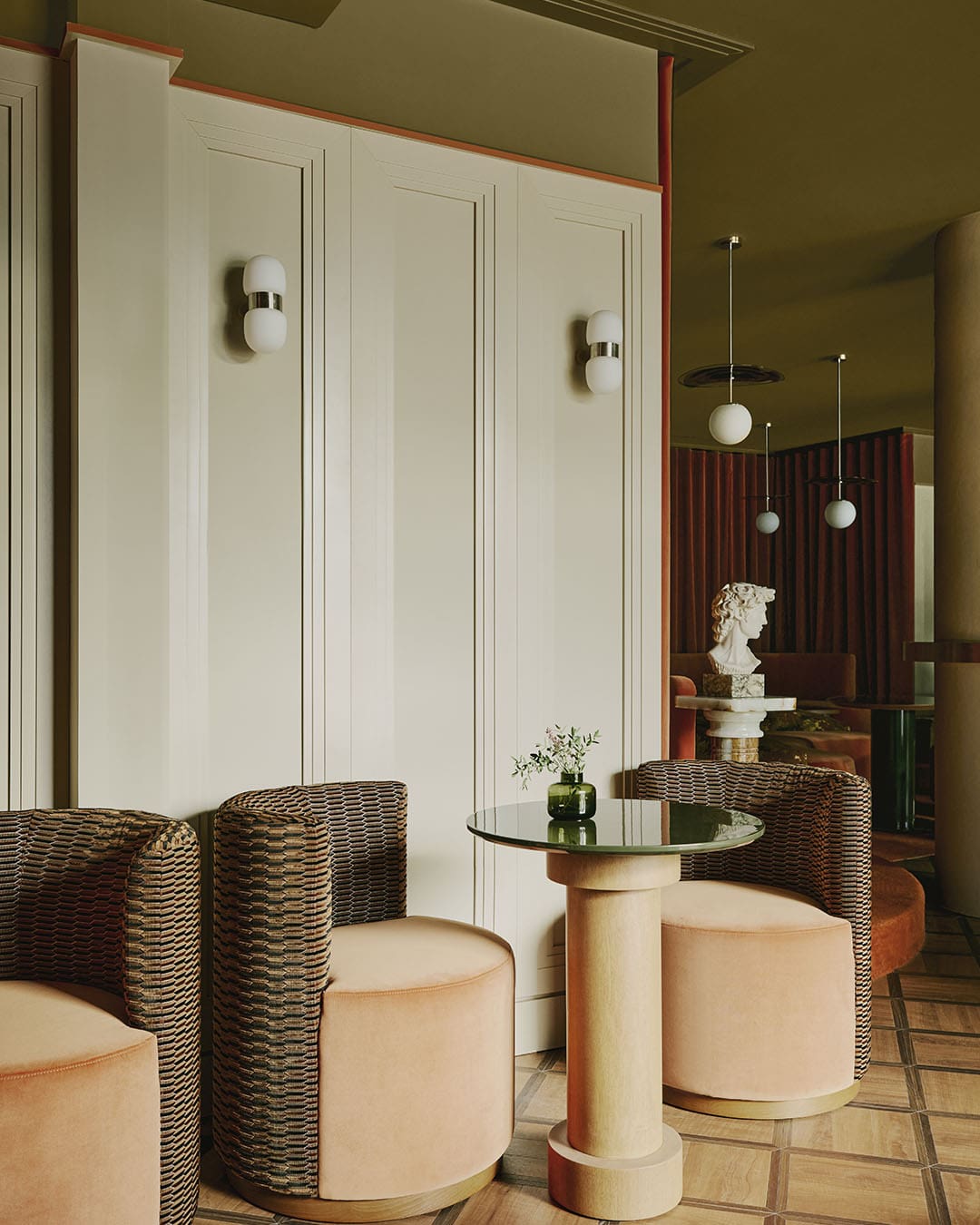
Hotels as hybrid spaces, and even homes
Hybrid hotels are being built for locals as well as travellers. Single use spaces are giving way to blended communal areas that evolve throughout the day and encourage guests to linger – whether that’s over locally brewed coffee in a lobby-cum-lounge that transforms into a bar with a live DJ in the evening, or firing off emails in a co-working space beside the members-only gym.
Damien Perrot of Accor goes one further to suggest that in the future, people will choose to live in hotels instead of apartments. “Today, you may have a dining room in your home, and you invite people to come and share a meal there perhaps once a month, if that. Do you need those dining room square meters every day? No. So you don’t need such a big apartment; you can live in a smaller place as long as you are able to call on services when you need them.”
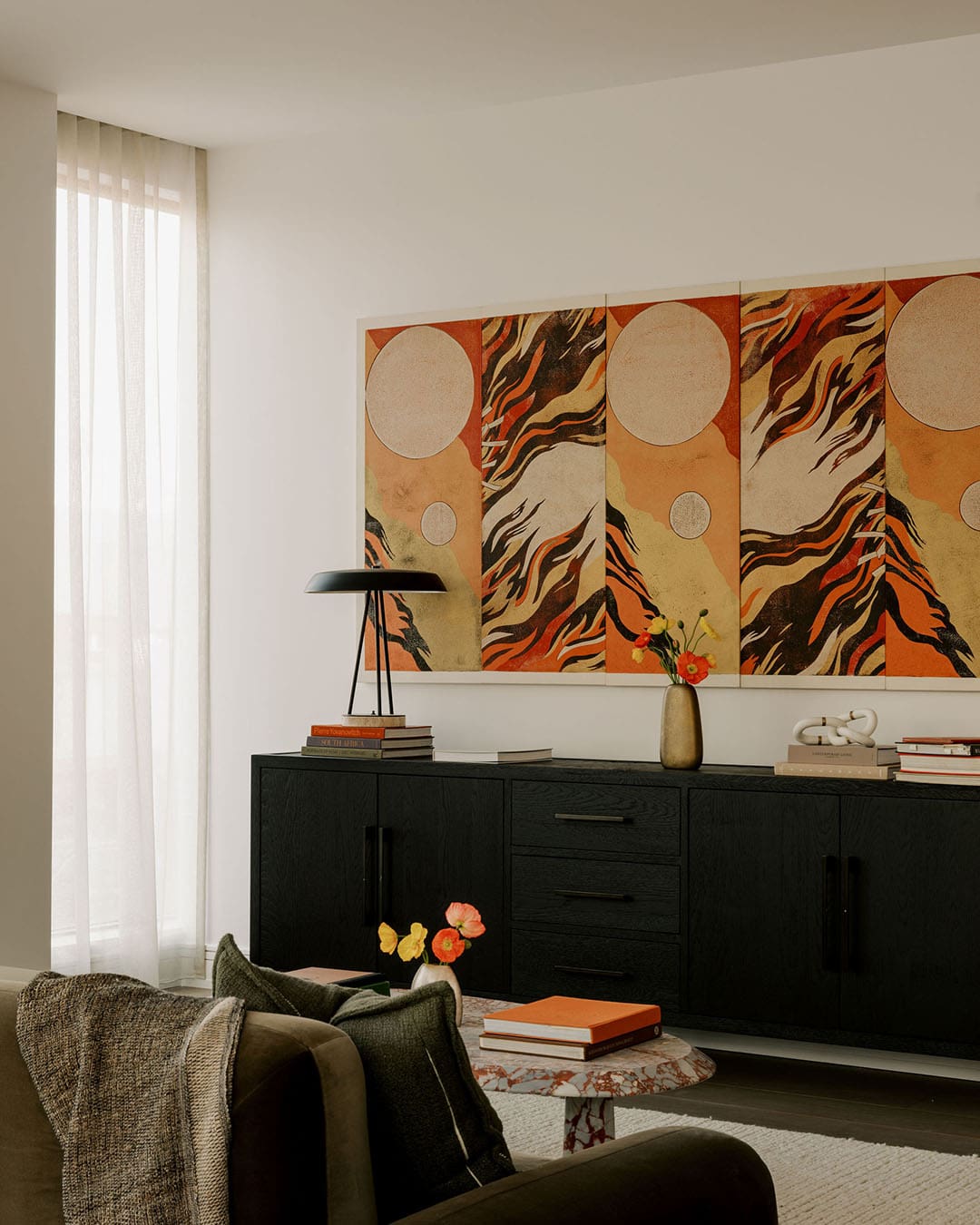
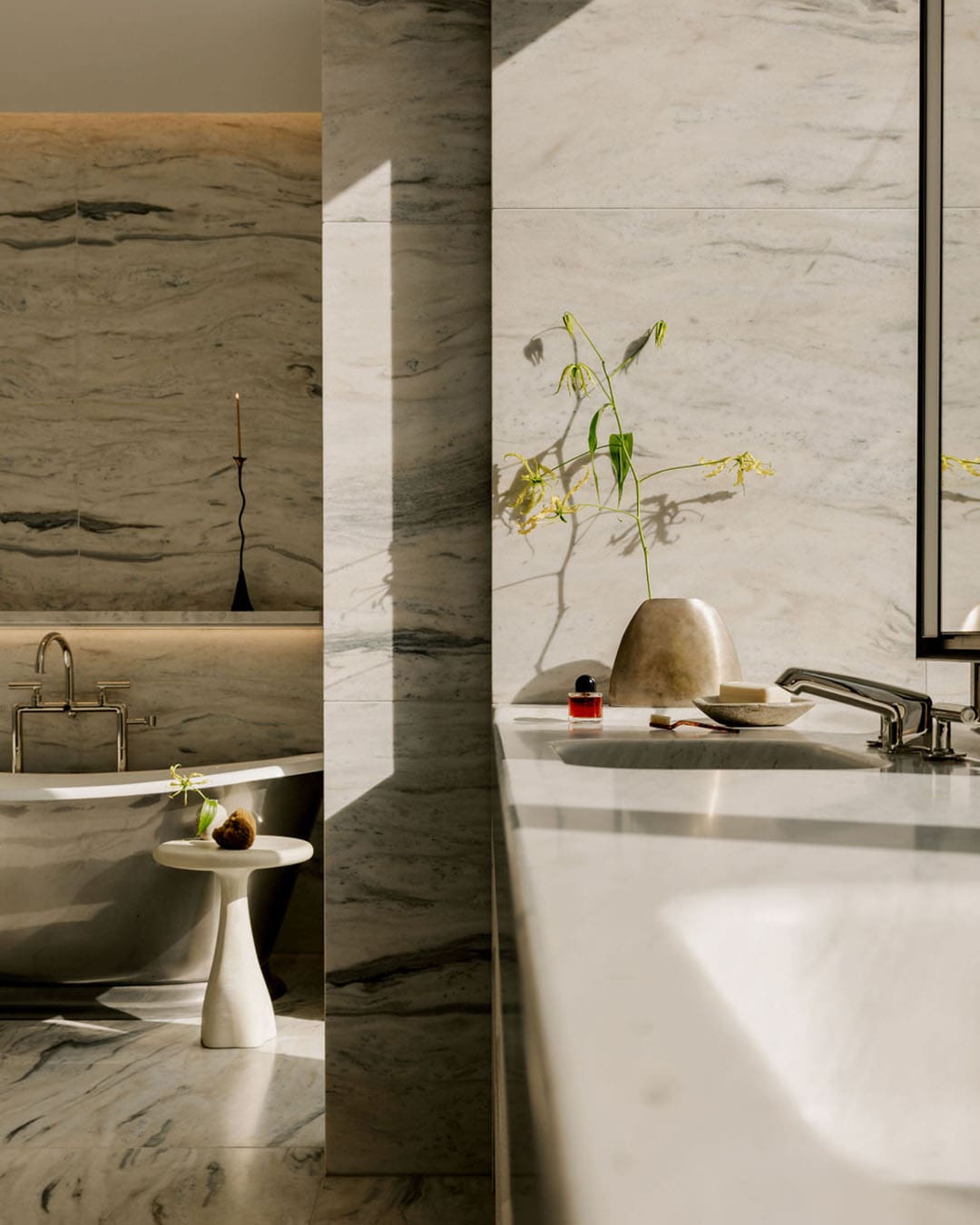
The shift is already visible at the top of the market. The appeal of hotel-branded luxury residences lies in exclusive access to hotel amenities. Esencia is a new, large-scale luxury development on the west coast of Puerto Rico that marries five-star hospitality with a community of private homes. Anchored by heavyweight trio Aman Group, Mandarin Oriental Hotel Group and Rosewood Hotels & Resorts and backed by $2 billion of private investment, Esencia will also include a bilingual school and retail spaces. “It’s not a resort with residences added on, it’s a fully integrated community with 75 per cent of land preserved as open space,” says Will Bennett, CEO and managing partner of Three Rules Capital, the company behind the development.
Gavin Graham, senior director of global residential operations at Rosewood, adds: “Residential living is a cornerstone of our long-term growth strategy and we’re seeing momentum across global markets. Branded residences represent the next chapter in luxury living.”
In London, the anticipated Six Senses – the group’s first UK opening – will debut in 2026 with 14 branded residences. The hotel will also introduce Six Senses Place, a private member’s club focused on wellness and community, with a lounge, co-working spaces and restaurant. It joins other luxury hotels in the British capital such as The Emory, which enhance their appeal with residences and members-only wellness clubs for the one per cent.
At a more moderate price point, Edyn – the group that owns aparthotel brand Locke and Cove serviced apartments – regularly hosts guests for months at a time, and occasionally years. “Can a hotel act as a home? Absolutely. Can it become a home? That’s more nuanced,” says Jon Walters, head of central operations. “The key lies in creating genuine connections, between guests and our team, and with the local community.”
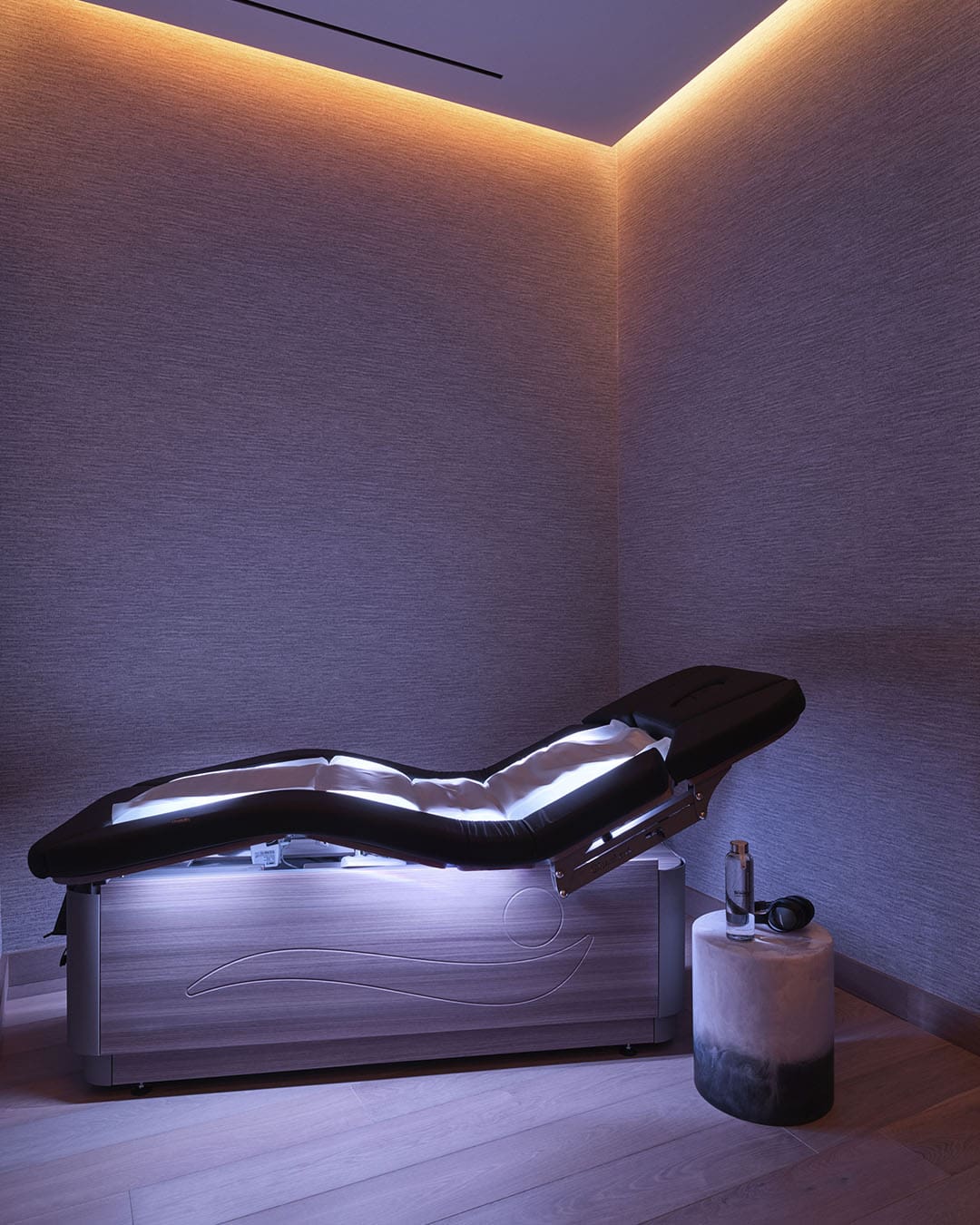
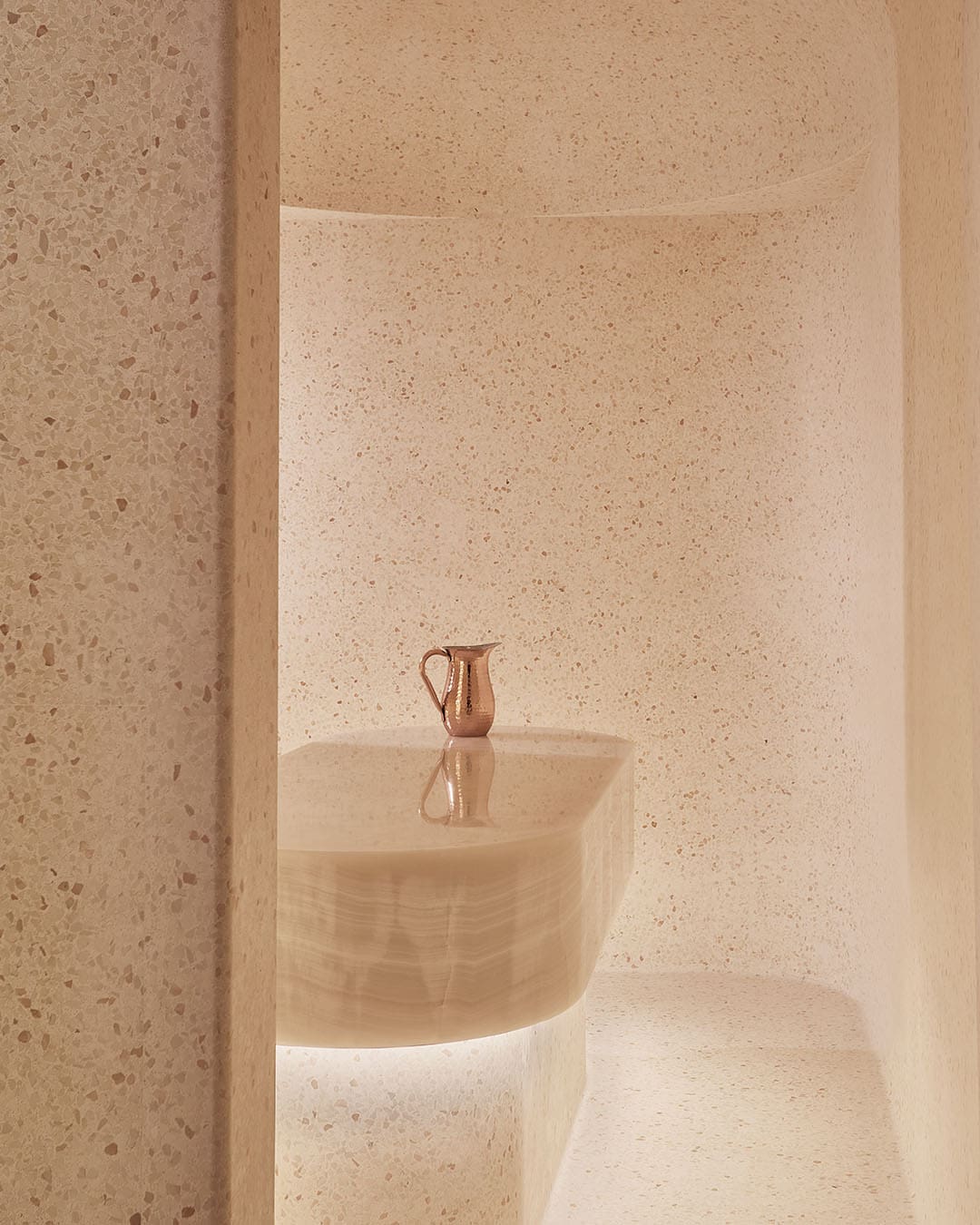
"Tailored lifestyle experiences are the ultimate differentiator in luxury hospitality"
Fitness and wellness
The future of wellness will not be reserved for the spa or gym, but integrated into every aspect of a hotel. Gyms are already punching higher and looking better, with fitness spaces now occupying prime hotel real estate, which may have once been reserved for suites.
Body scanners and biometrics are set to become standard in luxury spaces, while AI-powered guestrooms will respond to light and sound, creating cocoon-like environments. “The next wave in hospitality will see wellness as a core design principle, informing how spaces are created,” asserts Chris Norton, CEO of Equinox Hotels, renowned for its five-star health and fitness offering in New York. The group is currently expanding into Saudi Arabia and has an aggressive roll-out plan for both urban and resort locations across the US. These hotels will be industry-leading in their fitness offering but, as Norton notes, technology cannot replicate “a walk in restorative landscapes or a deeply engaging conversation. Consistent service and tailored lifestyle experiences are the ultimate differentiator in luxury hospitality.”
“Personalised wellness will be embedded into the flow of light, air and nature rather than limited to specific facilities,” says Tim Peck of OBMI. “Technology will become more invisible and intuitive.”
“I’m curious to watch how wellness gets genuinely and intuitively integrated,” adds Amar Lalvani. “Hotels have a long way to go to keep up with guests on this front. Not guests of the future. They’re already there and we need to meet them where they are.”
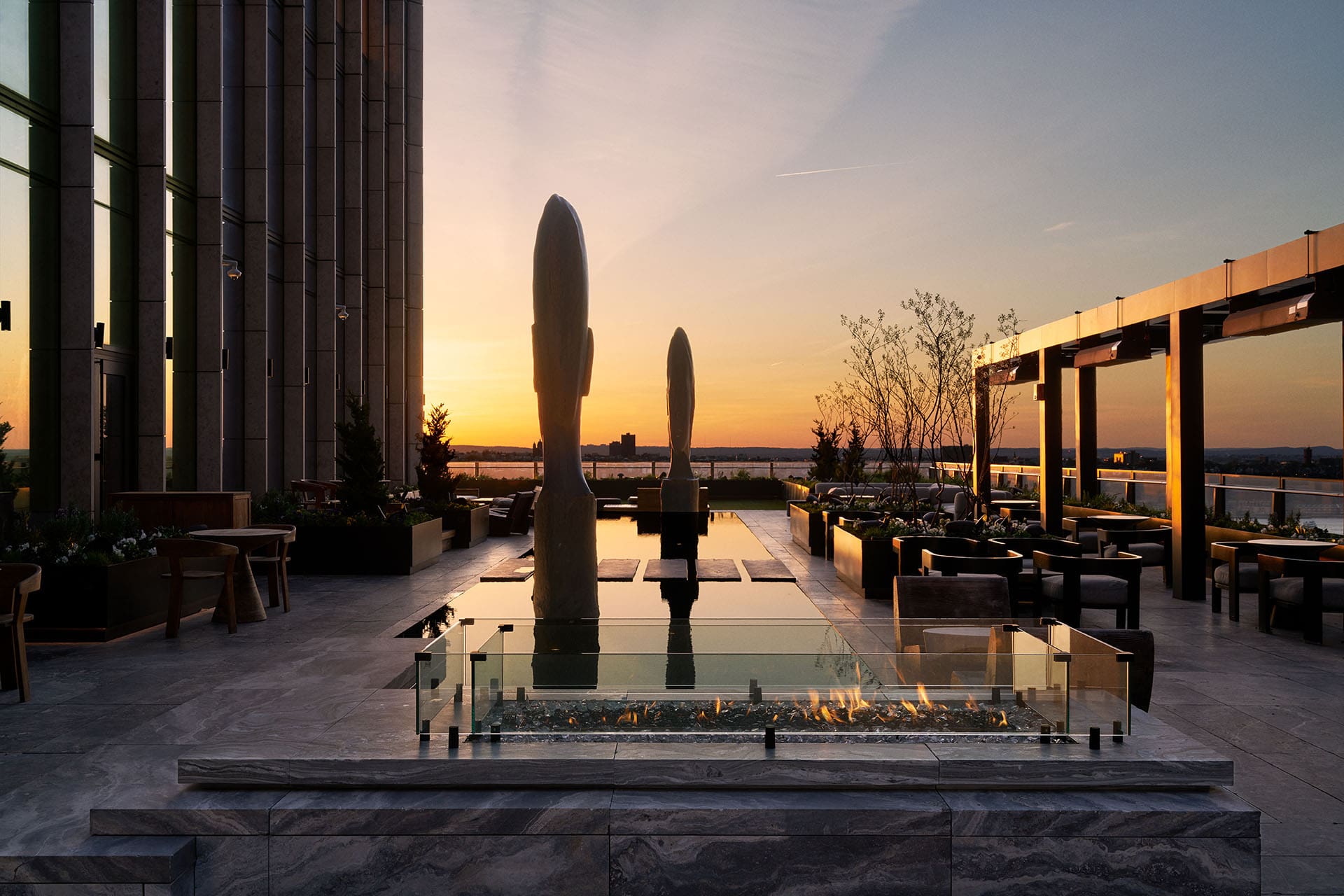
What will define the great hotels of the future?
Tomorrow’s great hotels will fuse hospitality, community, and culture. In an age of homogenous design, they will stand out for their character, detail and deeply human touch. Accessibility will be equally important, ensuring that comfort and design are open to all. Technology will no doubt enhance the experience, but no guest wants an empty lobby or a light switch they can’t find. Personalisation will be subtly and quietly baked into the customer experience through AI-driven recommendations that anticipate the needs and choices of guests at scale.
These hotels will be daring enough to challenge the traditional status quo, whether that’s through the architectural layout of a building, social programming or switching up in-room amenities.
Guest priorities have evolved to value spaces that offer narrative as well as efficiency. Hotels that provide third spaces for connection will stand apart, from coffee shops and lobby bars to social programmes such as fitness classes and creative workshops. Sustainability will sit authentically at the crux of each decision, with accountability embedded from inception to ensure a lighter footprint and enduring positive impact.


